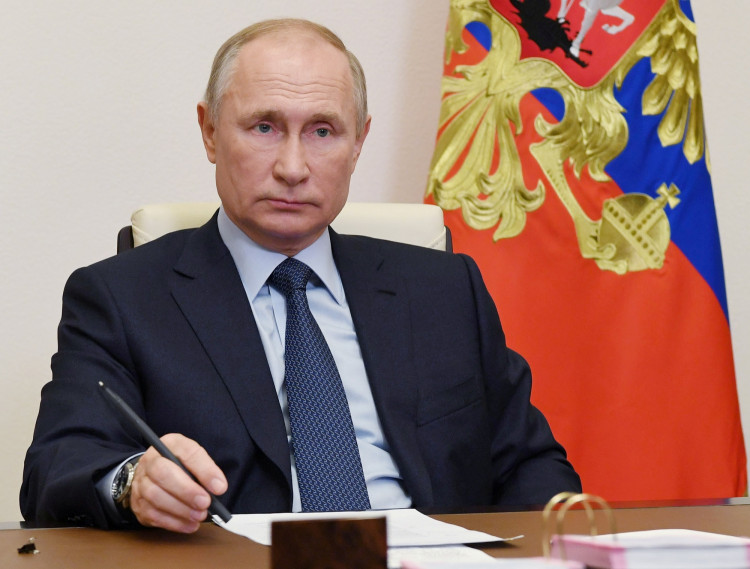Ukrainian forces launched a surprise incursion into Russia's Kursk province, catching the Kremlin off-guard and prompting widespread panic among Russian officials and media. The bold move, which represents the first time Ukrainian regular forces have crossed into Russian territory, has sent shockwaves through Moscow, leading to an emergency response and raising questions about the stability of President Vladimir Putin's leadership.
The Ukrainian operation, which began earlier this week, saw several hundred troops breach the lightly defended border of Kursk, quickly advancing into Russian territory and ambushing a Russian convoy 25 miles inside the international border. The attack has severely damaged Russia's credibility, with commentators and military analysts expressing astonishment at Ukraine's ability to keep the offensive under wraps.
Sergey Mardan, a prominent Russian media host, described the initial reactions of Russian bloggers and commentators as "panicked" and "apocalyptic." Mardan noted the unusually tense expression on Putin's face during recent public appearances, describing it as "meaningful" and indicative of the gravity of the situation. He urged viewers to remain calm, advising them to turn off their TVs and uninstall social media apps to avoid the overwhelming sense of uncertainty.
Military expert Mikhail Khodaryonok, appearing on Mardan's show, marveled at Ukraine's success in concealing its plans, lamenting, "How could this happen? How?" Khodaryonok's comments underscore the shock and disbelief within Russian circles that the country's extensive intelligence apparatus failed to anticipate the incursion. He warned that ordinary Russians would soon start questioning how such a significant breach in national security could occur.
The Kremlin has remained tight-lipped about the specifics of the Ukrainian operation, but Russian military correspondents have reported that fierce fighting is ongoing in the region. Alexei Smirnov, the acting governor of Kursk oblast, announced that Moscow had declared a federal emergency in response to the incursion and urged residents to stay calm and support each other. So far, 3,000 Russian civilians have been evacuated from the affected areas.
The surprise attack has not only raised concerns about Russia's military preparedness but also reignited historical and symbolic tensions. Kursk, the site of the largest tank battle in history during World War II, is now once again a battleground. The city's name also evokes memories of the tragic sinking of the nuclear submarine Kursk in 2000, a disaster that Putin mishandled early in his presidency, leading to widespread criticism of his leadership.
As the situation in Kursk unfolds, the Kremlin has responded by transferring additional military reserves to the region, including Grad rockets, artillery, and tanks. Video footage released by Russian military media shows convoys of armored vehicles being transported to reinforce the area. However, the outcome of the incursion remains uncertain, with analysts warning that it could lead to further escalation.
The Ukrainian government has largely refrained from commenting on the operation, but President Volodymyr Zelenskyy alluded to the incursion in his nightly address, stating, "Russia brought the war to our land and should feel what it has done." The attack appears to be a calculated move by Ukraine to regain the initiative and challenge Russia's control over the conflict.
Hanna Shelest, a senior fellow at the Center for European Policy Analysis, noted that the operation has had a significant psychological impact, weakening the image of Putin as a strongman who can protect his own people. She suggested that Ukraine's military goal might be to force Russia to divert resources away from the eastern front, where it has been making slow but steady gains.
However, the strategic risks of the operation are also apparent. John Foreman, a former UK defense attaché to Moscow and Kyiv, cautioned that the Kursk operation could strain Ukraine's already stretched resources. He noted that while the operation has achieved some territorial gains, the long-term impact remains to be seen.
The incursion has also raised questions about the broader geopolitical implications. While Ukraine's Western allies, led by the United States, have generally been supportive of Ukraine's efforts, there are concerns about the potential for further escalation. The White House has stated that Ukraine's actions are consistent with U.S. policy, although it reiterated its opposition to long-range attacks into Russian territory.






